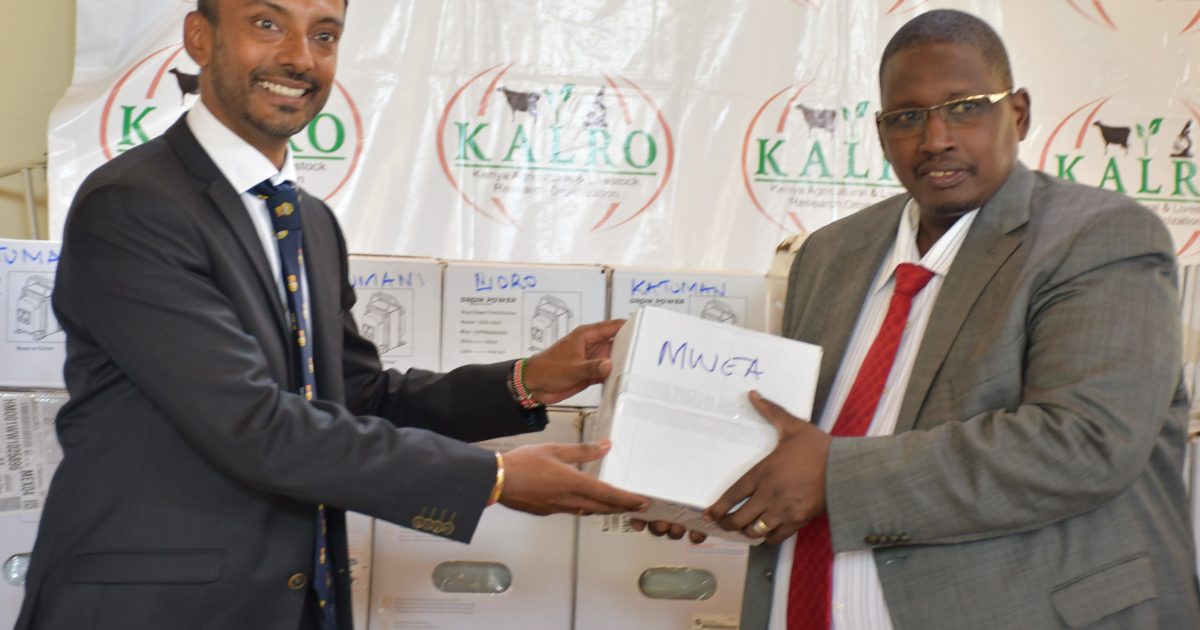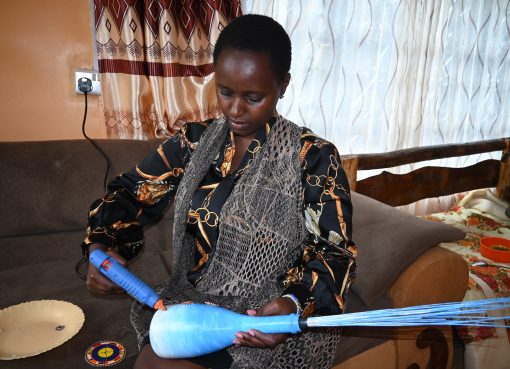Kenya Agricultural Livestock Research organization (KALRO) has today received 23 assorted and specialized equipment estimated at Ksh 9.2 million for digitization for plant breeding programs.
Through Excellence in Breeding (EiB) platform for maize, wheat, rice, sorghum, beans, and potato breeding programs under the International Agricultural Research (CGIAR) the equipment’s will be distributed in various KALRO centres and complement the ongoing initiative to digitize historical data.
Speaking today during handing over of the digitization equipment at the KALRO headquarters, Director General KALRO, Dr. Eliud Kireger said the equipment is important for research programmes since most of the research in KALRO is breeding of different crops that develop higher yields, are resistant to the disease and pests and also other attributes demanded by the market.
“we have been using old traditional equipment and now we will be able to fast track the whole process and make it more efficient, cheap and more accurate.”, he said adding that the modern equipment will go a long way in ensuring that breeders are able to breed their work faster more accurately and ensure food security and higher productivity of crop as well as benefit farmers”, he said .
He explained that despite KALRO having made strides in crop breeding, research is hindered by lack of digitization equipment as the organization has been using laborious systems including manual layouts and collection, followed by manual data entry into computers.
“This old age process is prone to data entry errors and delays in analysis, publication and reporting considering that currently the institution does research on over 400 crops.
The equipment donated today, he added will assist in the digitization of the 6 crops, significantly reducing research costs with regard to labour thus freeing scientists to focus on core research activities including publications.
He explained that once the data is collected from the field and information passed into the breeding management system, it will be accessible and easier to anybody from extension officers to farmers to access and if anyone wants varieties for example that maybe resistant to a particular disease in a certain area, they are able to choose what is required instead of going to archives
Currently, Dr. Kireger said that they are digitizing data from 2002 dating 20 years back and that by next year they will have covered everything before moving to other crops.
“The objective of all this is to make sure the process is faster and that when one goes to the field collecting data will be quick , cheaper and the errands minimized”, the DG said
CGIAR -EIB Coordinator Dr. Biswanath Das said that developing crop varieties that will respond to challenges of climate change, increased drought and temperatures and also different distribution of pest and disease is absolutely critical and therefore modernization the breeding programmes is essential.
“Technology is changing quickly in the world of plant breeding as compared to 5 or 10 years ago as we see tremendous development in genomics, molecular technology and this therefore needs adoption in this breeding programme”, he said.
The equipment’s will be instrumental in speeding up breeding process in KALRO, Dr. Das said adding that since it’s a cutting-edge equipment that requires training, CGIAR will in the next few weeks through a team of experts provide training and support to KALRO breeders in order for them to be able to use the equipment’s in their breeding programmes.
by Wangari Ndirangu




